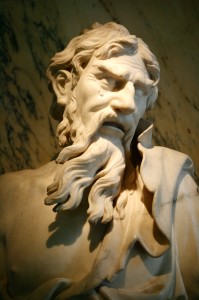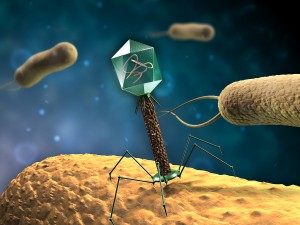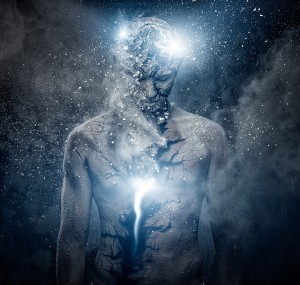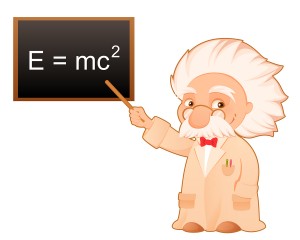 A previous post, Where is Mind in Nature, mentioned panpsychism as the philosophical view that, perhaps, is most consistent with the deluge of current scientific data about mind in nature. Searching for the Mind has described cognitive processes in cells, microbes, viruses and even jumping genes and molecules. Panpsychism is far superior to materialist theories in explaining these phenomena, as well as, neuroplasticity and intelligence in animals and plants.
A previous post, Where is Mind in Nature, mentioned panpsychism as the philosophical view that, perhaps, is most consistent with the deluge of current scientific data about mind in nature. Searching for the Mind has described cognitive processes in cells, microbes, viruses and even jumping genes and molecules. Panpsychism is far superior to materialist theories in explaining these phenomena, as well as, neuroplasticity and intelligence in animals and plants.
Tam Hunt’s new book, Eco, Ego, Eros: Essays in Philosophy, Science and Spirituality is a great resource for understanding this important view. It is one of the clearest books available on the philosophy of mind.
Tam Hunt is a philosopher with a strong interest in science, particularly neuroscience. Mr. Hunt has interviewed many of the current leading scientists in a variety of fields and presents their views in the book, along with a history of well-known philosophers that support panpsychism. For me, it is one of the best philosophical texts on the mind and the place of panpsychism in the history of philosophy. It is extremely useful when considering the scientific material presented in Searching for the Mind.
Christof Koch, one of the world’s foremost neuroscientists, writes the foreward of the book. Dr. Koch is the rare well-known scientist today, who has not succumbed to the prominent simplistic materialist explanations that are viewed by many as dogma. But, rather, in major science journals, Dr. Koch attempts to describe the truth about what science actually knows and doesn’t know about the brain.
The following is a Q and A with Tam Hunt about his new book on panpsychism.
Question: Searching for the Mind has described panpsychism as, perhaps, the best approach to understanding mind in the current deluge of new scientific data. Can you describe panpsychism and why you think it matters?
Answer
Panpsychism is the view that all matter has some mind and some subjectivity associated with it. So, where there is matter there is mind and where there is mind there is matter. As matter complexifies, so mind complexifies – generally, but not always. This solution to the mind-body problem is both simple and in keeping  with truths gained from evolutionary biology and many other fields.
with truths gained from evolutionary biology and many other fields.
I think this kind of discussion is important (I wrote an entire book that revolves around the idea, after all) because, in today’s world, we are sadly lacking a scientifically-sound approach to spirituality. Panpsychism offers both a philosophical and a spiritual solution. Panpsychism is more scientific than today’s prevailing materialist approach to the great mysteries of the universe, because it allows a more seamless and unified, as well as parsimonious, way of thinking about these great mysteries. As a large added bonus, panpsychism is also a bridge between the traditionally conflicting realms of science and spirit because it opens up the possibility of a unified approach to knowledge gained both from the external world – the realm of science – and knowledge gained from the internal world – the realm of spirituality.
Question: You’re a lawyer. Why are you writing about philosophy and spirituality?
Answer
I’ve been reading in philosophy pretty vigorously since I was in my late teens. I began publishing in this field only in the last few years, when my reading and questioning reached the point that I felt I had some ideas worth sharing. My brain kind of caught on fire when I read David Ray Griffin’s excellent book, Unsnarling the World-Knot, a solution to the mind-body problem that is heavily influenced by the “process philosophy” school of panpsychism developed by Alfred North Whitehead, Charles Hartshorne, John Cobb, Jr. and Griffin himself.
 The basic idea of process philosophy is Heraclitus’ insight over 2,500 years ago: “all things flow.” That is, all things are perpetually changing. We can imagine snapshots of frozen bits of the universe, and this may be helpful in various fields for simplifying reality on the path to deeper understanding. But, process philosophy holds, we should never forget that this freezing of time is a trick, and that the real universe is always proceeding forward in time, always changing and flowing.
The basic idea of process philosophy is Heraclitus’ insight over 2,500 years ago: “all things flow.” That is, all things are perpetually changing. We can imagine snapshots of frozen bits of the universe, and this may be helpful in various fields for simplifying reality on the path to deeper understanding. But, process philosophy holds, we should never forget that this freezing of time is a trick, and that the real universe is always proceeding forward in time, always changing and flowing.
Whitehead was a towering figure in mathematics, logic, physics and philosophy. He’s not very well known today, unfortunately, largely because his views were very complex and he didn’t make much of an effort to make them digestible to non-specialists. Griffin and many others are in the process of making Whitehead’s work more digestible and I count this objective as one of the many in writing my book.
Question: Why do materialist explanations of mind and consciousness fail, in your view?
Answer
The prevailing materialist approach to the mind-body problem is generally described as “emergentism” and the idea is that mind/subjectivity springs forth from wholly mindless matter at a particular point when the requisite complexity is reached. Life developed on this planet some billions of years ago and, so the materialist view holds, mind developed at an unspecified point after life came along. Where the line falls between creatures with minds and creatures without minds is a matter of some debate. This is a problem because it seems to me that there is no good reason to suppose that something as profound as subjectivity itself sprang forth at a particular point of complexity – rather than a moment before or after. Moreover, this emergence must take place in each creature that develops consciousness as it develops from an embryo into an adult.
It makes a lot more sense to me, as an alterative to this view, to suggest that there is at least some type of mind present in all matter, so it’s not a matter (pardon the pun) of mind emerging at a  particular moment, but rather the ongoing complexification of mind in each conglomeration of matter. It’s also about different levels of mind. We can speak legitimately of cellular minds, of molecular minds, etc. – but these are just really simple types of minds. The key problem that remains in both materialist and panpsychist approaches to the mind-body problem is how these various lower level minds combine to form higher level minds like our own. I’ve suggested my own solution in my book and more technically in a previous paper.
particular moment, but rather the ongoing complexification of mind in each conglomeration of matter. It’s also about different levels of mind. We can speak legitimately of cellular minds, of molecular minds, etc. – but these are just really simple types of minds. The key problem that remains in both materialist and panpsychist approaches to the mind-body problem is how these various lower level minds combine to form higher level minds like our own. I’ve suggested my own solution in my book and more technically in a previous paper.
Biological life is characterized by a high degree of active equilibrium, due to the various feedback loops and energy flows that exist in all living things. These characteristics of life are what allow highly complex minds like ours to exist. But it’s not an all or nothing kind of thing – it’s a spectrum of consciousness from the simplest of little humming minds in electrons and atoms up to humans and perhaps beyond.
Question: Searching for the Mind only describes current scientific data, not religion, in attempting to find out what mind and consciousness is and where it might be in the universe. What do you mean by “God” and is this necessary for your view of panpsychism?
Answer
I do discuss God a little in my book. This is a major reversal for me since I was for much of my life an atheist. My current vision of God is far different than that of traditional religions. I talk about God as Source and God as Summit. God as Source is the ground of being, the soil from which reality grows. It has numerous names: apeiron, the One, the Godhead, unus mundus, ether, ein sof, and many others. This God is not conscious. Rather, God as Source is more of a metaphysical principle of creativity.
I feel that we can infer the existence of God as Source simply from the reality of the universe around us. God as Source  is the brute explanatory fact in our philosophical system below which we cannot go. Once we accept God as Source as a real entity we can, and should, ask what are its features? I’m currently delving into this inquiry in my next book, Cosmic Ecology: God’s Evolving Dream.
is the brute explanatory fact in our philosophical system below which we cannot go. Once we accept God as Source as a real entity we can, and should, ask what are its features? I’m currently delving into this inquiry in my next book, Cosmic Ecology: God’s Evolving Dream.
God as Summit is less certain to me. God as Summit is, if it exists, a conscious being, though surely nothing like the angry and vengeful God of the Old or New Testament. I haven’t personally felt the present of God as Summit in my life so I remain agnostic as to its reality. The reason I remain open is because the explanation for the existence of minds like our own – which I’ve sketched above – leads naturally to the idea that far larger minds may exist. Just as cells cooperate to form our body, so subordinate minds may form larger minds beyond the level of our current understanding.
If I had to place a bet on the existence of God as Summit I’d say it’s not here yet and, in fact, a romantic but entirely defensible purpose for our lives is to bring God as Summit into existence through the literal co-creation of God. This is a vision heavily influenced by the well-known French Jesuit Pierre Teilhard de Chardin, as he described in his book, The Human Phenomenon, published in English in 1955. This co-creation could be a very long process over the coming eons – but that’s a conversation for a different book.
Question: You also write a number of chapters on modern physics. Again, you’re a lawyer – so why are you writing about physics?
Answer
Well, I’ve also been reading vigorously in physics for two and a half decades now. I’m no physicist but I do feel qualified to comment on the philosophy of  physics in certain areas, including relativity theory. Where I criticize relativity theory I generally rely on other physicists’ own critiques, including, for example, Lee Smolin, whose new book, Time Reborn, includes many issues with today’s relativity theory. I also rely on Nobel Prize winner, Ilya Prigogine’s, work, as well as David Bohm, John Bell, and others.
physics in certain areas, including relativity theory. Where I criticize relativity theory I generally rely on other physicists’ own critiques, including, for example, Lee Smolin, whose new book, Time Reborn, includes many issues with today’s relativity theory. I also rely on Nobel Prize winner, Ilya Prigogine’s, work, as well as David Bohm, John Bell, and others.
Question: You seem to have an ax to grind when it comes to Einstein and relativity theory. Why is that?
Answer
A number of years ago I read Einstein’s own little book on relativity theory, Relativity: The General and Special Theories. It’s a great introduction to relativity theory and Einstein revised it numerous times, so it remained an accurate description of his views until his death. There’s a very telling passage in Einstein’s description of his development of special relativity, in which he describes his preferred definitions of time and simultaneity, where he states his stipulation of simultaneity as resting on the constancy of the speed of light no matter the speed of the observer.
 Einstein also states that he has a right to stipulate whatever he wishes. On this, I agree entirely. Science is about making hypotheses and seeing where those hypotheses take us. We can and should consider what flows from the stipulation that the speed of light is constant for all observers. However, we must recognize, also, that this is a very strange stipulation because nothing else in our universe behaves this way. Rather, all other things change speed as the observer changes speed (or, rather, their apparent speed changes). Einstein suggested that the speed of light was instead absolute and independent of the speed of the observer. This one stipulation leads to all the craziness regarding time dilation and contraction of matter as it approaches the speed of light.
Einstein also states that he has a right to stipulate whatever he wishes. On this, I agree entirely. Science is about making hypotheses and seeing where those hypotheses take us. We can and should consider what flows from the stipulation that the speed of light is constant for all observers. However, we must recognize, also, that this is a very strange stipulation because nothing else in our universe behaves this way. Rather, all other things change speed as the observer changes speed (or, rather, their apparent speed changes). Einstein suggested that the speed of light was instead absolute and independent of the speed of the observer. This one stipulation leads to all the craziness regarding time dilation and contraction of matter as it approaches the speed of light.
It also leads to Einstein’s well-known view that free will is an illusion because the past, present and future are all determined. There is no room for free will in Einstein’s universe and I find this highly disturbing. This is the basis for my critiques of Einsteinian relativity theory. Thankfully, there are alternatives to relativity theory and I describe some of these alternatives in my book.
Question: Can you describe your criticism of Darwinian evolution?
Answer
My undergraduate work was in evolutionary biology so this is another area that I’ve been noodling for quite some time. I’d always had the feeling that Darwinian evolution was at best incomplete and I figured out in the last few years what my intuition was about.
The basic problem (of a few) is that much of modern evolutionary theory rests on circular or tautological definitions. For example, natural selection is described in terms of fitness, which is defined generally in terms of adaptations, which is defined in terms of  natural selection – and so the circle goes round and round. My long paper on this issue is here and I suggest that we can remedy this major problem with today’s evolutionary theory by looking to a panpsychist approach to biology, which takes seriously the notion that most creatures are active agents in their own evolution, in tandem with the random elements highlighted by Darwinian theory. Darwin himself might actually agree with my critiques because I expand his ideas on sexual selection (fleshed out in The Descent of Man) into a “generalized sexual selection” theory that may act as a more general theory than today’s natural selection theory, which was the focus of Darwin’s first major book, On the Origin of Species.
natural selection – and so the circle goes round and round. My long paper on this issue is here and I suggest that we can remedy this major problem with today’s evolutionary theory by looking to a panpsychist approach to biology, which takes seriously the notion that most creatures are active agents in their own evolution, in tandem with the random elements highlighted by Darwinian theory. Darwin himself might actually agree with my critiques because I expand his ideas on sexual selection (fleshed out in The Descent of Man) into a “generalized sexual selection” theory that may act as a more general theory than today’s natural selection theory, which was the focus of Darwin’s first major book, On the Origin of Species.
Question: The last chapter is a long interview with Giulio Tononi. Can you summarize what is important about his contribution?
Answer
Giulio is at the forefront of the philosophy of mind and cognitive science. He is a psychiatrist at the University of Wisconsin, Madison, and he splits his time between the scientific study of sleep and the scientific study of consciousness. He has developed over the last thirty years what is now known as the Integrated Information Theory of consciousness. I attended the Association for the Scientific Study of Consciousness’s (ASSC) annual meeting in San Diego last July and Giulio’s ideas were prominently featured. I had the feeling at the conference that we’re in the midst of a paradigm shift away from purely materialist views of mind toward some variety of panpsychism.
 Giulio’s theory suggests that consciousness is literally integrated information. Integrated information comes about when information-processing units, of whatever sort, are interconnected such that the whole is more than the sum of its parts. So the integrated information is the extra something that is formed by the collection of connections between entities – like that which exists in human brains, comprised of numerous neurons and neuronal connections.
Giulio’s theory suggests that consciousness is literally integrated information. Integrated information comes about when information-processing units, of whatever sort, are interconnected such that the whole is more than the sum of its parts. So the integrated information is the extra something that is formed by the collection of connections between entities – like that which exists in human brains, comprised of numerous neurons and neuronal connections.
Giulio himself shies away from the panpsychist label and argues that his theory is not panpsychist. I take issue with his caution on this matter because it seems to me that his theory is undeniably panpsychist. Regardless, I think his ideas have a lot of merit and I look forward to the debate unfolding in future years. Many scientists and philosophers have been attracted to Giulio’s approach because of its quantification framework and also its ability to qualitatively describe in various ways the nature of consciousness.
Question: Last, what is evolutionary philosophy and why does it matter?
Answer
Evolutionary philosophy is a fairly new field that takes the insights about evolutionary biology and applies them more broadly to life, the universe and everything. Science is really the study of change because all things are changing, so to understand the world around us we must understand change. Evolutionary theory and philosophy are all about change. This approach takes time seriously – time is not an illusion. We are in fact  witnessing new things, new ideas, new creatures, coming into being all the time. We exist in an ever-flowing river.
witnessing new things, new ideas, new creatures, coming into being all the time. We exist in an ever-flowing river.
Evolutionary philosophy asks where is this process going? Pierre Teilhard de Chardin is arguably the patron saint of evolutionary philosophy due to his grand vision of humanity and the universe evolving to an Omega Point at which time the maximum level of complexity and of consciousness is reached in the universe. I don’t actually buy the details of Teilhard’s Omega Point ideas (in particular, I don’t agree that anything is pulling the universe toward greater complexity; rather, I believe that each creature, no matter how large or small, is pushing the universe toward greater complexity), but I do buy the idea that we are all co-evolving  toward higher levels of complexity and of consciousness.
toward higher levels of complexity and of consciousness.
Evolutionary philosophy thus provides a life-affirming vision for our future and role in co-creating that future. It’s up to each of us to carve out our own personal vision and to creatively execute that vision in the years we are gifted here on this planet.